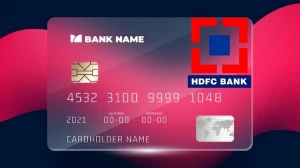
- Home »
- Credit Card »
- Credit Card Vs Charge Card, What is the Difference Between Credit Card and Charge Card?
Credit Card Vs Charge Card, What is the Difference Between Credit Card and Charge Card?
The main difference between a credit card and a charge card is that credit cards allow you to carry a balance from month to month, while charge cards require you to pay the balance in full each month.
Published Aug 03, 2023 | Updated Dec 11, 2023 | 📖 5 min read
Credit Card Vs Charge Card
Credit cards and charge cards serve as essential financial tools, but they differ significantly in how they function. Credit cards offer users the flexibility to carry a balance from month to month, with the option to make minimum payments while incurring interest charges.
In contrast, charge cards necessitate paying the entire balance in full each month, preventing the accumulation of debt but requiring financial discipline. Credit cards come with preset credit limits, determined by factors like credit history and income, while charge cards typically lack preset limits, with spending caps adjusted based on individual factors.
Credit cards often charge fixed or variable Annual Percentage Rates (APR) for carrying balances, while charge cards do not typically impose an APR. The choice between the two depends on one's financial habits, creditworthiness, and whether they prefer the convenience of revolving credit or the discipline enforced by settling the balance monthly.
What is the Difference Between Credit Card and Charge Card?
When comparing charge cards and credit cards, several significant distinctions revolve around spending limits, payment structures, associated fees, and overall prevalence. While credit cards often take the limelight, charge cards still persist, albeit with less advertising prominence.
|
Feature |
Credit Card |
Charge Card |
|
Credit Limit |
Yes, preset limit determined during approval process |
No preset limit, but spending is not unlimited |
|
Interest Rate |
Fixed or variable APR on carried balances |
Usually no APR since balances must be paid in full monthly |
|
Late Fees |
Yes, applicable for late payments |
Yes, charged for unpaid monthly balance |
|
Annual Fees |
Ranges from $0 to high amounts depending on the card |
Usually, some business charge cards may have no annual fee |
|
Rewards and Perks |
Commonly includes rewards, welcome bonuses, and perks |
Sometimes includes rewards, bonuses, and other perks |
|
Accessibility |
Available to a wide range of applicants, including bad or no credit history |
Requires good to excellent credit score (usually 670 or higher) |
|
Credit Score Impact |
Affects credit score based on payment history, credit utilization, length of credit history, and other factors |
Impacts payment history and length of credit history, does not affect credit utilization |
|
Payment Discipline |
Revolving credit, allows carrying a balance with interest charges |
Must be paid in full monthly, no option for carrying a balance |
|
Issuer Variety |
Many issuing banks offer a variety of options |
Limited options, primarily issued by American Express |
What is a Charge Card?
A charge card is a type of payment card that shares similarities with a credit card but has a distinct payment structure. Unlike credit cards, charge cards typically don't come with a preset spending limit. Instead, transactions are approved based on factors like spending habits, payment history, and credit-related considerations.
Users of charge cards are generally required to pay off the full balance each month, with no option for carrying a balance over time. While charge cards are less common than credit cards, they offer a unique approach to spending, emphasizing full monthly payment rather than revolving credit.
MarketsHost warmly invites you to an immersive experience, where we unveil the intricacies of Credit Cards, enabling you to make informed financial decisions with confidence.
Which One is the Best Charge Card or Credit Card?
Choosing between a credit card and a charge card depends on your individual financial goals and situation. Charge cards, with their built-in requirement to pay the full balance each month, can be beneficial for preventing overspending and debt accumulation. However, their availability is limited, and they often come with high annual fees.
Credit cards offer a broader selection, including options for various credit scores, but the ease of carrying a balance can lead to debt issues. Nevertheless, a credit card, especially one with a 0% APR offer, might be advantageous when you need extra time to pay off significant purchases.
Ultimately, there's no one-size-fits-all answer. Evaluating your financial status, considering available card options, and understanding your spending habits will guide you in making a well-informed decision.
Also Read >> Best Credit Cards for the Christmas Shopping U.S
How to Get a Charge Card?
To get a charge card, you generally need a good-to-excellent credit score, as charge cards typically require a strong credit history. Unlike credit cards with preset spending limits, charge cards assume that you'll pay the full bill every month. American Express is a major issuer that still offers cards resembling traditional charge cards, including options like the American Express® Green Card, the American Express® Gold Card, and The Platinum Card® from American Express.
It's important to note that these cards may also have a "Pay Over Time" feature for eligible purchases, allowing flexibility in payments with interest charges. Other retailers and small business card options may also provide charge card alternatives. If you have poor or limited credit, a secured card might be a more accessible option.
How Does Having Charge Cards Impact Your Credit Score?
Having charge cards can impact your credit score in a unique way compared to traditional credit cards. Unlike credit cards where your credit utilization ratio (the amount of credit you're using compared to your available credit) plays a significant role, charge cards typically don't have preset credit limits. As a result, the impact on credit utilization may differ. It's advisable to confirm this with your card issuer for clarity.
The other factors influencing your credit scores, such as timely payments, still apply to charge cards just as they do to credit cards. Whether you have a charge card or credit card, responsible credit management remains essential for maintaining a positive credit profile.
Credit Card Vs Charge Card - FAQs
1. What is the main difference between a credit card and a charge card?
Credit cards allow carrying balances with preset limits, while charge cards require full monthly payments with no preset limit.
2. How does having a charge card affect your credit score?
Charge card balances don't factor into credit utilization rates, benefiting your credit score with responsible use.
3. What do you need to obtain a charge card?
You typically need a good-to-excellent credit score (around 700 or above) to qualify for a charge card.
4. Can a charge card help build credit history?
Yes, responsible use of a charge card can establish a positive credit history, showcasing your creditworthiness.
5. Are there alternatives if I can't qualify for a charge card?
Consider applying for a secured credit card, which requires a security deposit and helps build or rebuild your credit.




